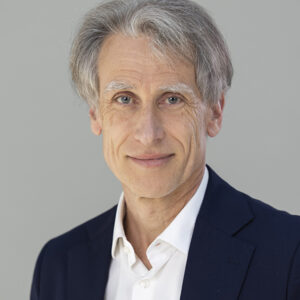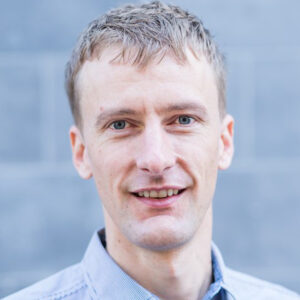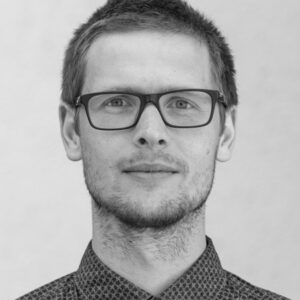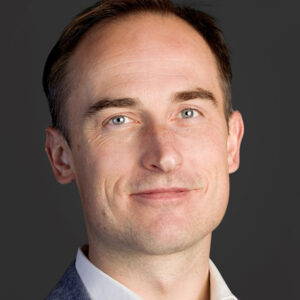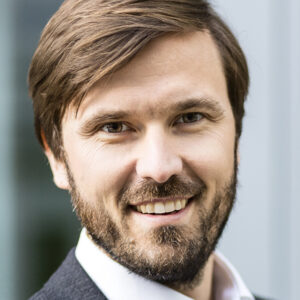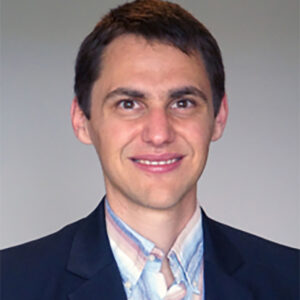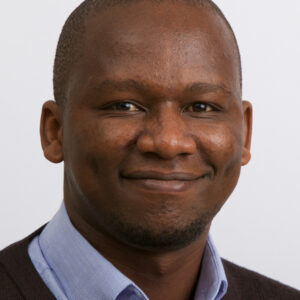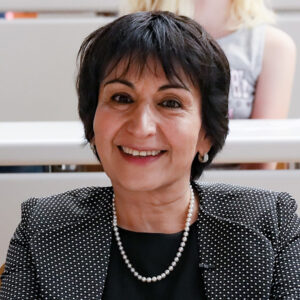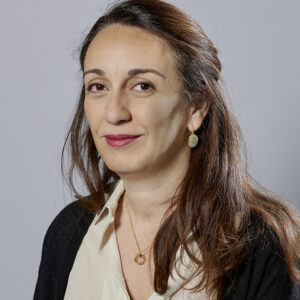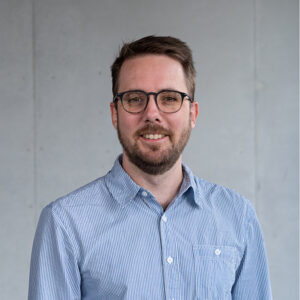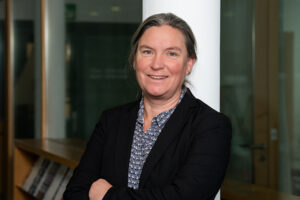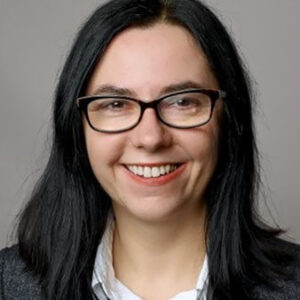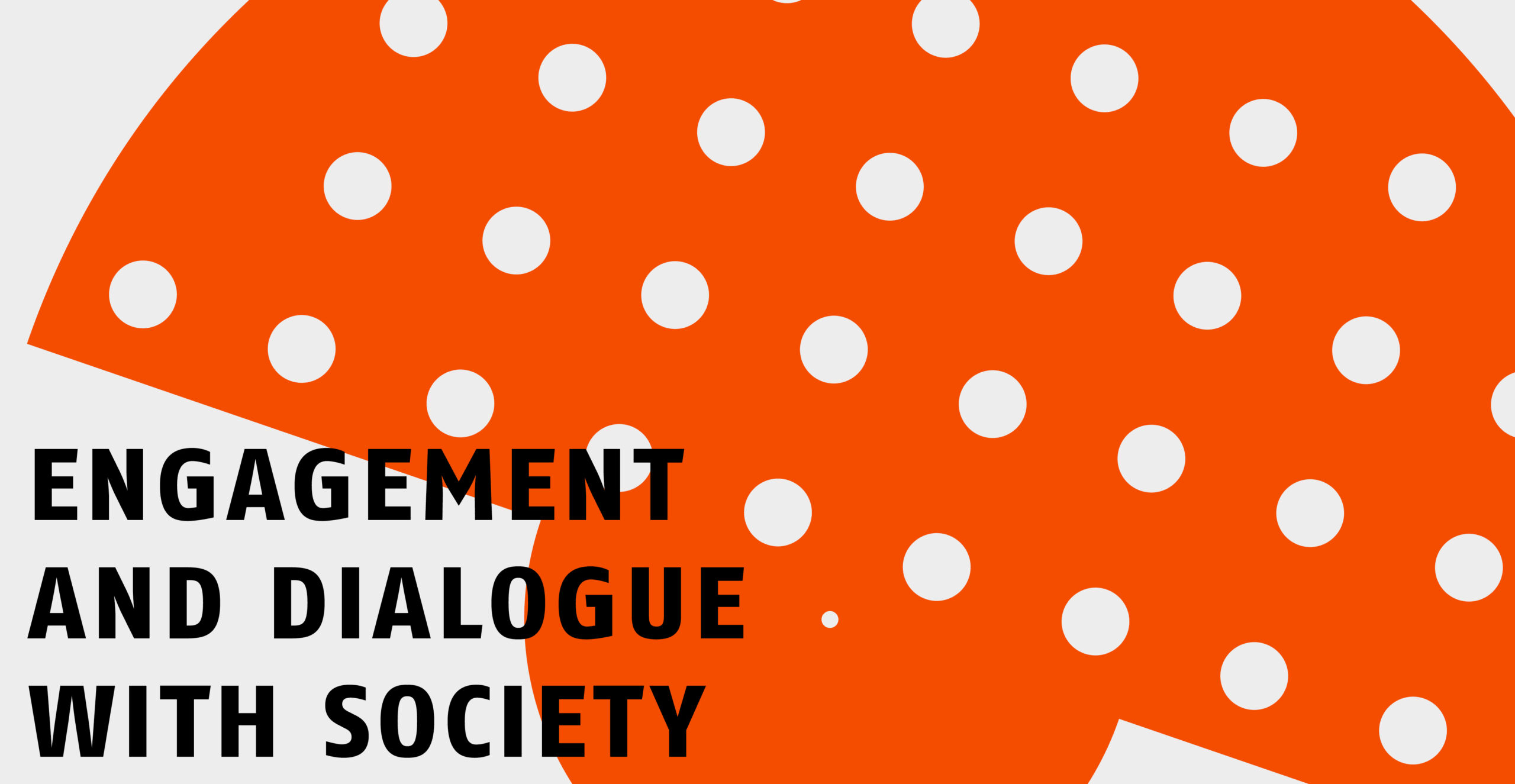
Strategic Area Engagement and Dialogue with Society
To address the major challenges of our time, the ETH Domain has defined Strategic Areas. In these Strategic Areas the ETH Domain institutions are well positioned to have a particularly strong impact and enable them to focus their strengths on key issues for Swiss society and the Swiss economy.
On this page, you will find the twelve speakers from the Strategic Area Engagement and Dialogue with Society, which aims to strengthen dialogue with society to build shared solutions.

Engagement and Dialogue with Society – An institutional perspective towards the future ǀ More
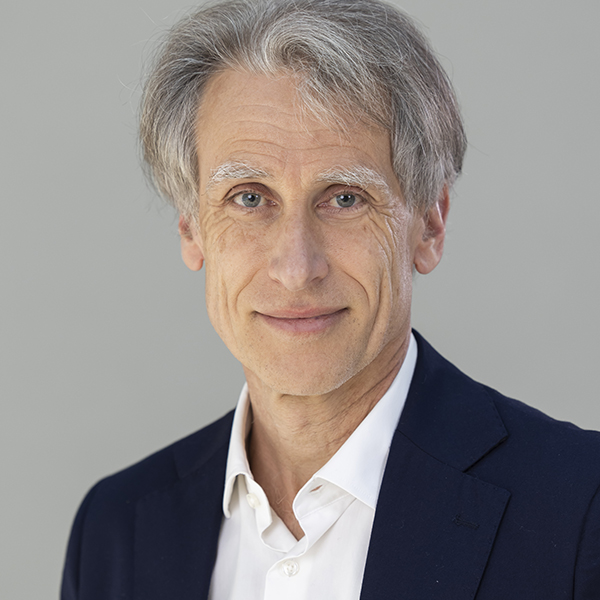
Christian Stamm
Engagement and Dialogue with Society – An institutional perspective towards the future
Abstract
We are confronted with enormous global challenges such as climate change where progress towards solutions is slow. This raises the question whether research institutions could do better in supporting society on their path towards a sustainable future. Scientific evidence though, is often highly appreciated by stakeholders – if the evidence supports their political opinions. This presentation explores from an institutional perspective how we may move beyond the current status quo through capacity building, developing new institutional arrangements with stakeholders or broadening staff portfolios to allow for more inclusive engagement with society that addresses simultaneously economic, political and societal needs in multi-actor contexts.
About
Dr Christian Stamm is Deputy Director of Eawag. He has a background in biology, soil physics and hydrology. For more than 30 years he has been working on topics related to agriculture and water quality. This field is politically often contested and therefore Christian has a broad experience at the science-policy/practice interface. He leads the Joint Initiative Engage - Evidence-based dialogue on trade-offs in wicked societal problems.
A Moving Target? Training LLMs in the Context of Swiss and European AI Regulation | More
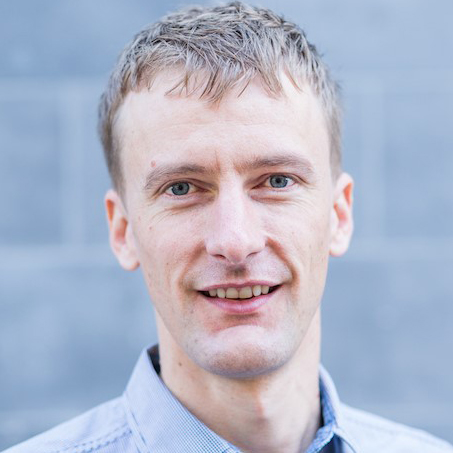
Martin Jaggi
A Moving Target? Training LLMs in the Context of Swiss and European AI Regulation
Abstract
This talk explores how shifting regulatory frameworks in Switzerland and the EU are influencing the development of large language models (LLMs). Based on concrete projects such as Apertus, as well as engagement with Swiss parliamentary debates on AI policy, we discuss data governance, transparency, and author rights. We also reflect on how regulatory questions interface with responsible, competitive LLM research in Switzerland.
About
Martin Jaggi is an Associate Professor at EPFL, heading the Machine Learning and Optimization Laboratory. Before that, he was a post-doctoral researcher at ETH Zurich, at the Simons Institute in Berkeley, and at École Polytechnique in Paris. He has earned his PhD in Machine Learning and Optimization from ETH Zurich in 2011, and a MSc in Mathematics also from ETH Zurich.
Forest Report 2025 – a joint adventure of science and policy ǀ More
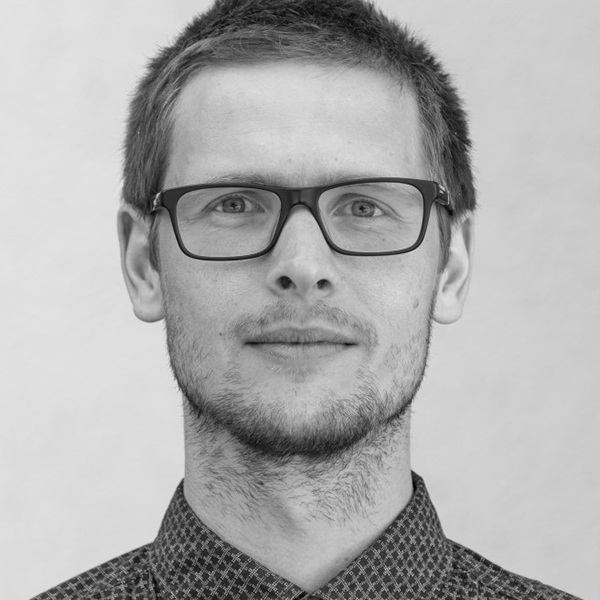
Christoph Fischer
Forest Report 2025 – a joint adventure of science and policy
Abstract
Federal offices play a key role in Switzerland's political processes, incorporating specialist knowledge into laws and regulations. Accordingly, cooperation with authorities is important for evidence-based policy-making. The Forest Report is a decadal, co-authored publication by the WSL and the Federal Office for the Environment (FOEN). It synthesizes long-term empirical data to assess the condition and changes of Swiss forests over the past decade. About 90 experts from science and administration contributed jointly to this edition, ensuring a broad knowledge base. The report facilitates international comparability and serves as a reference for informed decision-making, included policy-making. In this context, we examine the challenges and opportunities in producing such a collaborative product.
About
Christoph Fischer received his Ph.D. in Forestry from Georg-August-Universität Göttingen in 2011. Since 2011, he has worked with the Swiss National Forest Inventory (NFI) at WSL. He is Head of the Scientific Service NFI since 2020 and was appointed Head of the Swiss NFI Program in 2025. He enjoys working in an interdisciplinary environment.
The energy modelling / policy interface: some examples and insights from PSI-LEA ǀ More
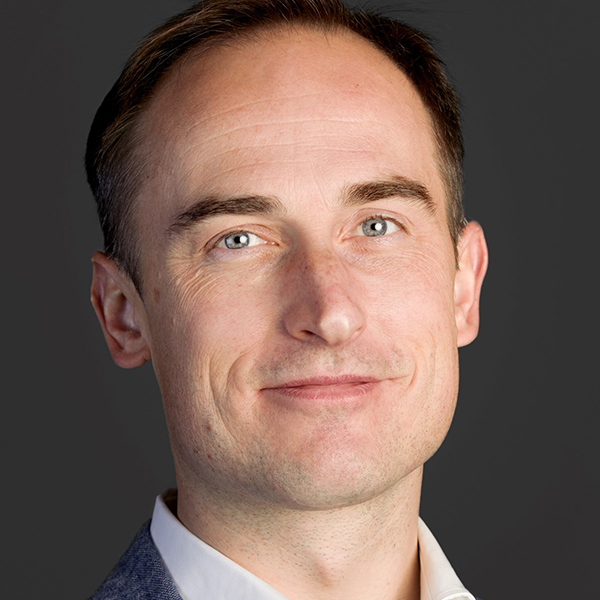
Russell McKenna
The energy modelling / policy interface: some examples and insights from PSI-LEA
Abstract
In the PSI Laboratory for Energy Systems Analysis (PSI-LEA), we conduct applied interdisciplinary research focussing on the holistic assessment of energy technologies and systems. To this end, we develop and apply quantitative and qualitative methods and models to reflect partly conflicting technical, environmental, economic, social and political technology characteristics and operational objectives. This requires strong engagement with key policy, industrial and societal stakeholders, and a combination of quantitative and qualitative methods. In this presentation, we will explore some examples of this stakeholder engagement and the ways in which it informs policy-oriented research, deriving some key insights and recommendations in the Swiss energy domain.
About
Prof. Russell McKenna is Full Professor of Energy Systems Analysis at ETH Zurich and Head of the Laboratory for Energy Systems Analysis at the Paul Scherrer Institute. He is also an Honorary Professor of Energy Transition in the School of Engineering and Centre for Energy Transition at the University of Aberdeen. Previously he was Professor of Energy System Modelling and Head of the Energy Systems Analysis section at DTU Management Engineering, Technical University of Denmark (DTU). Prior to this he was Head of Group for Renewable Energy and Energy Efficiency at the Chair of Energy Economics, Institute for Industrial Production (IIP), Karlsruhe Institute for Technology (KIT), Germany.
Institutionalizing the engagement with Policymakers: the new School of Public Policy at ETH Zurich ǀ More
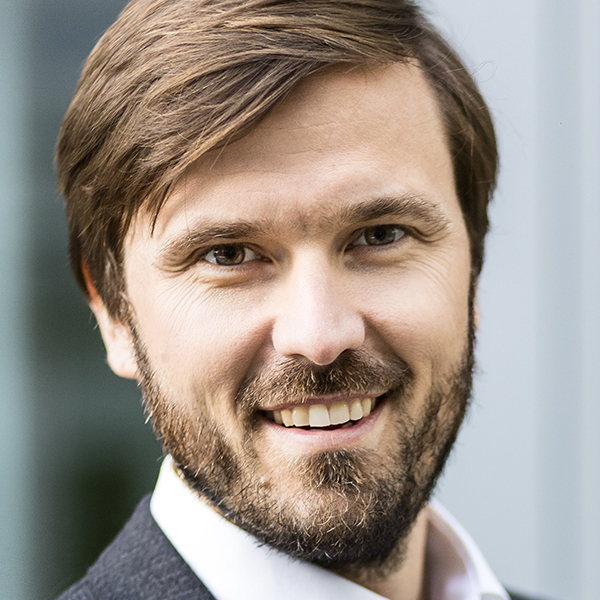
Tobias Schmidt
Institutionalizing the engagement with Policymakers: the new School of Public Policy at ETH Zurich
Abstract
Engaging with policymakers is a strategic focus of the ETH Domain. Yet, current structures pose several obstacles for meaningful and effective exchanges between science and policy. Researchers often lack incentives and capacity to engage with policy makers. At the same time, policymakers are typically interested in policy-focused evidence, often requiring inter- and trans-disciplinary scientific collaborations. To overcome these challenges, ETH Zurich has created a School of Public Policy in the fall of 2025. In my talk, I will outline how this new center works and how it contributes to strengthening science-policy engagement.
About
Prof. Tobias Schmidt is the founding director of the ETH School of Public Policy and heads ETH Zurich's Energy and Technology Policy group. In his research, he analyzes the interaction of energy policy and its underlying politics with technological change in the energy sector. In his teaching, for which he received ETH Zurich's students' prize Golden Owl, he covers conceptual and methodological courses (such as Policy Analysis) as well as courses related to the governance of the energy transition. Tobias holds a Bachelor of Science and Dipl. Ing. (MSc equivalent) in electrical engineering (energy focus) from the Technical University Munich and a PhD from ETH Zurich in management, technology, and economics.
Envisioning a bright future: co-constructing narratives and possibilities within planetary boundaries ǀ More
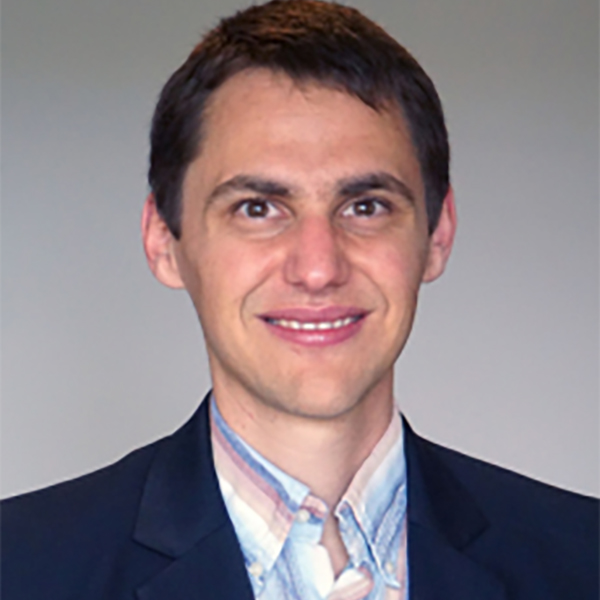
Harald Desing
Envisioning a bright future: co-constructing narratives and possibilities within planetary boundaries
Abstract
Science for sustainability can outline an option space for the future of humanity. Yet there are countless of options on how to fill this space with life, which comes down to the question on how do we want to live in the future? This talk will provide insights into two of the strategies we are taking at the Technology and Society Lab to tackle this question in a dialogue with future decision makers: co-creation processes with school children in collaboration with PHSG, which lead to the children’s book Zukunfts(K)reise; as well as interdisciplinary lectures at University of St.Gallen to co-construct business opportunities and regulatory possibilities for a future carbon-binding and circular society.
About
Dr Harald Desing is researching at Empa on how to design material cycles within planetary boundaries. He develops methods for considering planetary boundaries and circularity in product design, modelling the biophysical possibilities for accelerating the energy transition, as well as finding ways of returning to the safe limit for atmospheric CO2 concentration of 350ppm.

Bridging knowledge gaps: An organizational capability necessary for research institutes in the water sector ǀ More
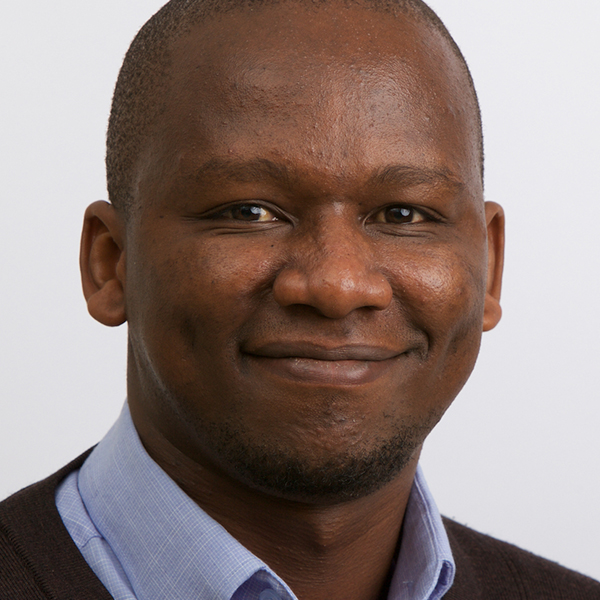
George Wainaina
Bridging knowledge gaps: An organizational capability necessary for research institutes in the water sector
Abstract
Research organizations struggle to bridge knowledge gaps between researchers and practitioners due to misaligned goals, siloed specializations, and under-resourcing. Individual efforts exist but often lack organizational support. Since mid-2023, Eawag’s Sandec department has piloted a "knowledge broker" role to bridge this gap. Using the dynamic capability framework (sensing/seizing/transforming), I will present how this role is impacting the department. Key activities include co-creating and disseminating diverse knowledge products (briefs, blogs, social media) for WASH practitioners. Results for Mar 2024-25 show that developed content received 1) over 1.3 million views, from professionals working in NGOs, governments, and research industries, 2) over 20,000 engagements and feedback, and 3) significant leads. The broker established new sensing (audience/channels), seizing (co-creation processes), and transforming (embedding in workflows) mechanisms in the department. Challenges remain in improving collaboration, scaling the role organization-wide, and sustaining the impact of dissemination.
About
Dr George Wainaina is a research group leader at Eawag, leading research on climate adaptation for water organizations. He has a PhD (Utrecht) in urban sustainability transitions and innovations management and is an expert in translating WASH science to practice. He has previously managed multiple development projects and published on basic service provision, institutional change & water security.
Educational Outreach: Building Long-Term Engagement for a Robust and Inclusive STEM Future ǀ More
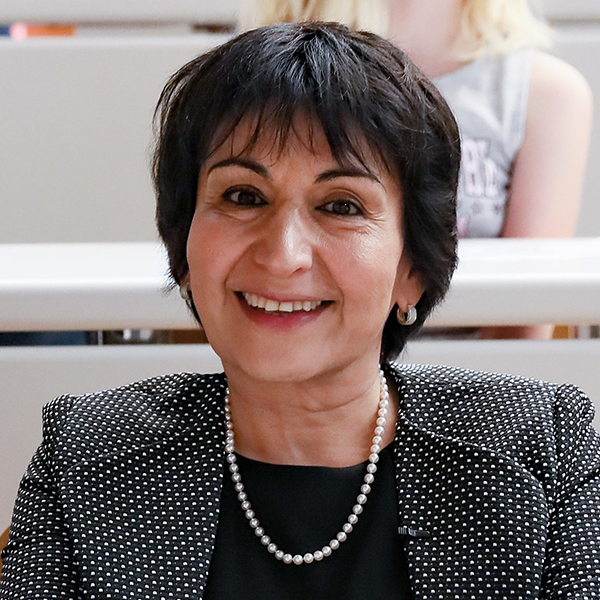
Farnaz Moser
Educational Outreach: Building Long-Term Engagement for a Robust and Inclusive STEM Future
Joint between:
- Dr Farnaz Moser, Science Outreach Department
- Dr Sabrina Rami, Education Outreach Department
Abstract
Switzerland’s capacity for innovation, resilience and democratic engagement relies on broad scientific literacy and a strong pipeline of future STEM professionals. As science and technology increasingly influence societal choices, academic institutions must take an active role in fostering inclusive access and motivation for STEM education from an early age.
EPFL leads a broad spectrum of outreach programs across Switzerland, engaging youth at multiple educational stages. This talk presents EPFL’s strategic approach to STEM outreach—emphasizing long-term engagement, diversity of formats, and regional anchoring—to help build an inclusive and future-ready STEM ecosystem
About
As Director of the Science Outreach Department of EPFL, Dr Farnaz Moser contributes to the development of institutional strategies on equal opportunities and the promotion of science and technology among young people and the general public. Her expertise includes designing programs such as STEM for Girls and Science Interests Me!, establishing strategic and financial partnerships, and managing interdisciplinary teams.
Educational Outreach: Building Long-Term Engagement for a Robust and Inclusive STEM Future ǀ More
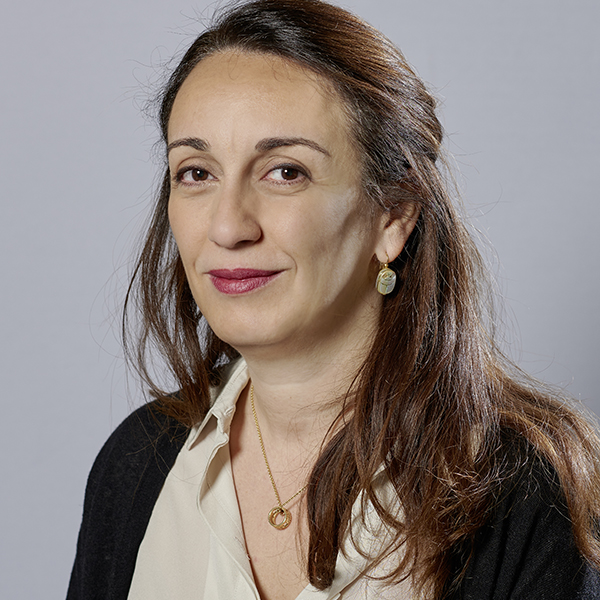
Sabrina Rami
Educational Outreach: Building Long-Term Engagement for a Robust and Inclusive STEM Future
Joint between:
- Dr Farnaz Moser, Science Outreach Department
- Dr Sabrina Rami, Education Outreach Department
Abstract
Switzerland’s capacity for innovation, resilience and democratic engagement relies on broad scientific literacy and a strong pipeline of future STEM professionals. As science and technology increasingly influence societal choices, academic institutions must take an active role in fostering inclusive access and motivation for STEM education from an early age.
EPFL leads a broad spectrum of outreach programs across Switzerland, engaging youth at multiple educational stages. This talk presents EPFL’s strategic approach to STEM outreach—emphasizing long-term engagement, diversity of formats, and regional anchoring—to help build an inclusive and future-ready STEM ecosystem.
About
As Director of the Education Outreach Department, Dr Sabrina Rami is in charge of developing and implementing an overall and consistent Educational Program's Promotion strategy, (Bachelor, Master, PhD), aligned with the specificities and the recent developments in the Education landscape, and through targeted collaborations and partnerships at local, national and international level.
Facts-based Futures – From Science Communication to Dialogue Platforms ǀ More
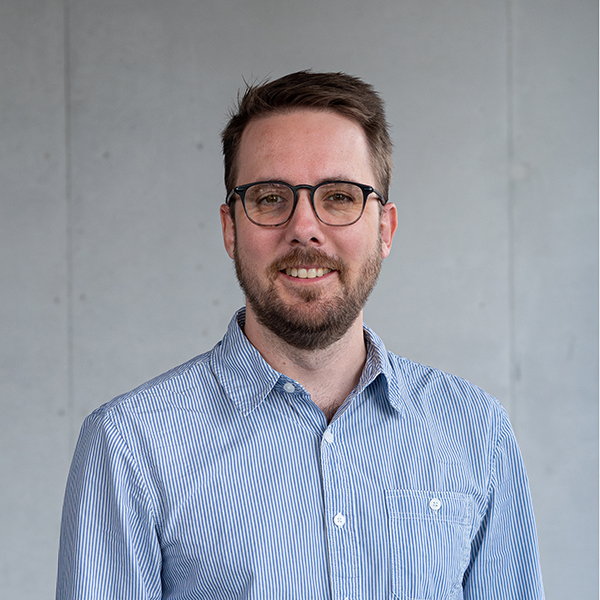
Oliver Süess
Facts-based Futures – From Science Communication to Dialogue Platforms
Abstract
Empa’s communication and outreach activities bridge facts and visions to foster a meaningful dialogue about pathways into the future. Through exhibitions, workshops, and stakeholder engagement, we empower our audiences to understand, imagine, and shape our shared future. Facts-based formats such as Emission Explorer at Verkehrshaus provide a solid foundation for decision-making, while experiences at NEST and activities around our flagship research initiative Mining the Atmosphere invite the public to explore circular and negative-emission futures. Likewise, we support younger generations by preparing them for challenges and inspiring perspectives on emerging technologies and careers.
About
Oliver Süess is communication project manager at Empa, making the ETH Domain's science accessible to broad audiences through interactive storytelling and digital media formats in the Joint Initiative Energy Science for Tomorrow (ES4T). With a background in multimedia production and event marketing, he previously developed B2C social media campaigns and managed major national events at SRF.
Engaging Society with Science: Experiences from “Cook the Science” ǀ More

Thomas Michaels
Engaging Society with Science: Experiences from “Cook the Science”
Abstract
“Cook the Science” is a public outreach project at ETH Zurich which aims to communicate science to the public in a fresh, engaging, and relatable way. By using cooking as a universal language, the project transforms complex concepts into tangible aspects of everyday life that spark curiosity and dialogue. This approach not only demystifies science, but it also builds trust, enables exchange with diverse audiences, and strengthens the connection between academia and society. In this presentation, I will share why “Cook the Science” has resonated so strongly with the public. I will preset some reflections on engaging effectively with society through scientific concepts as experienced through “Cook the Science” and highlight strategies for how we could make science more accessible to the public moving forward.
About
Originally from Lugano, Thomas studied physics and mathematics at ETH Zurich and earned a PhD in Biophysical Chemistry at Cambridge. After posts at Harvard and UCL, he returned to ETH in 2022 as Assistant Professor in the Department of Biology. Passionate about teaching, he started new initiatives at the interface of physics and biology and in October 2024 launched “Cook the Science”, a public lecture series merging cooking and science for public outreach.
From ‘sciencephiles’ to ‘passive supporters’: What different attitudes towards science mean for public outreach ǀ More
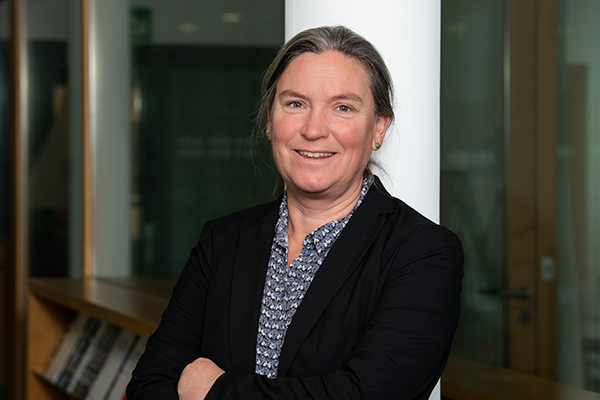
Birgit Ottmer
From ‘sciencephiles’ to ‘passive supporters’: What different attitudes towards science mean for public outreach
Abstract
WSL's public outreach activities are based on the public's attitudes towards science (according to the ‘Science Barometer’*). This distinguishes between whether people are interested in science or not and whether they have a positive or negative attitude towards it. This segmentation results in very different needs, which means that a wide range of communication tools and measures are necessary to reach, if not the entire population, then at least large sections of it. In the presentation, I will introduce the model and its practical implications.
*https://wissenschaftsbarometer.ch
About
Birgit studied environmental sciences at ETH Zurich, where she discovered her passion for research – and communication. She has been working as a science communicator at WSL since 2001 and has been head of the department for around 15 years. She is now also a member of the WSL Directorate.
Dialogue with Society as a Strategic Task at PSI ǀ More
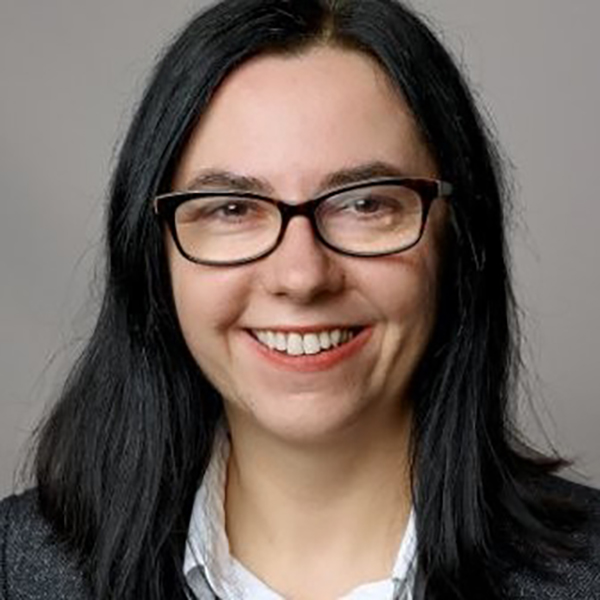
Martina Gröschl
Dialogue with Society as a Strategic Task at PSI
Abstract
Engaging in dialogue with society is a core element of the Paul Scherrer Institute’s mission within the ETH Domain. As Switzerland’s largest research institute for natural and engineering sciences, PSI not only advances cutting-edge research in energy, matter, and health, but also ensures its work is accessible and relevant to the public. This talk outlines PSI’s activities to foster exchange with diverse audiences—from schools and the interested public to policymakers and industry. By sharing examples of outreach, co-creation, and participatory dialogue, it highlights opportunities and challenges in building trust, addressing concerns, and strengthening the role of science in democratic decision-making.
About
Martina Gröschl holds a degree in Mathematics and in Science Communication. She is Deputy Head of Communications and Head of Cross Media Publishing at the Paul Scherrer Institute PSI. Since 2012 she has combined expertise in research infrastructures with science communication, shaping PSI’s strategic dialogue with society. As a former science journalist, she integrates the importance of research for society from the perspective of the public as well as from the perspective of science.
